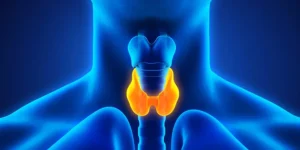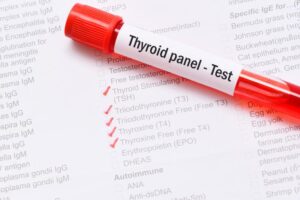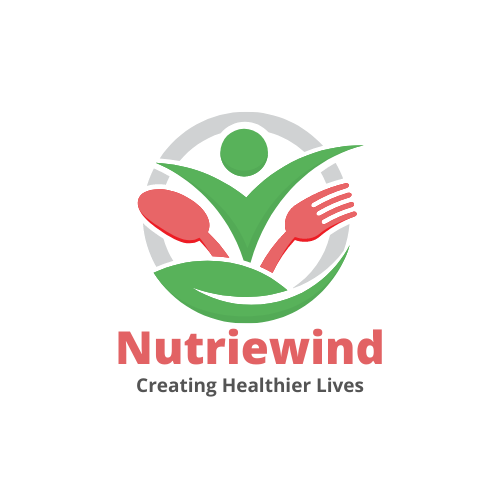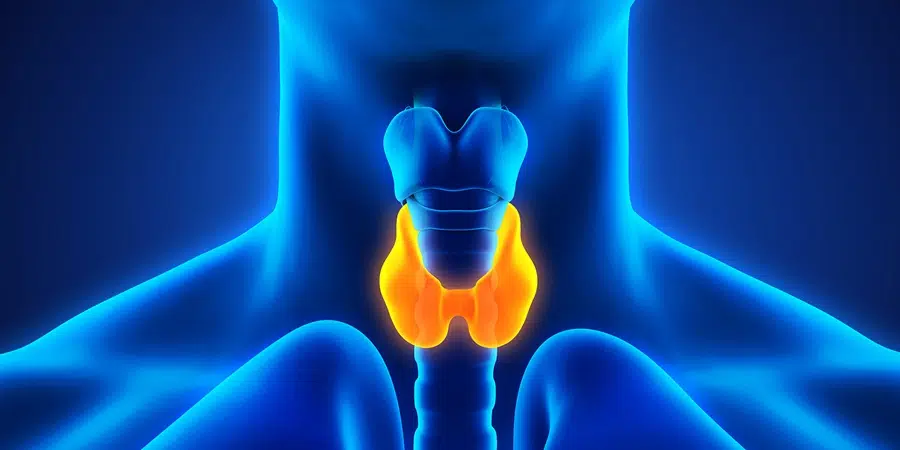What is Thyroid Gland & Its Functions?
The thyroid gland is a small butterfly-shaped organ located in the neck, responsible for producing essential hormones like thyroxine (T4) and triiodothyronine (T3). These hormones regulate metabolism, energy production, and growth, affecting nearly every cell in the body. Proper thyroid function is vital for maintaining healthy weight, mood, and body temperature. Imbalances in thyroid hormone levels can lead to conditions like hypothyroidism or hyperthyroidism, impacting overall health.

Thyroid and its Functions
Hypothyroidism:
What is Hypothyroidism?
Hypothyroidism is a condition where the thyroid gland doesn’t produce enough thyroid hormones. These hormones are essential for regulating metabolism, energy levels, growth, and development. Without adequate thyroid hormone production, individuals can experience various physical and emotional symptoms.
Causes of Hypothyroidism (Aetiology)
Several factors can lead to hypothyroidism, including:
- Autoimmune Thyroiditis (Hashimoto’s Thyroiditis): The immune system attacks the thyroid gland.
- Thyroid Surgery or Radiation Therapy: Can damage the thyroid gland.
- Thyroid Gland Damage or Inflammation: Caused by infections, tumors, or cysts.
- Iodine Deficiency: Lack of iodine in the diet can prevent thyroid hormone production.
- Medications: Certain drugs like lithium and amiodarone can affect thyroid function.
- Pituitary Gland Disorders: Reduced thyroid-stimulating hormone (TSH) production can impact thyroid function.
Common Hypothyroidism Symptoms
- Fatigue & Weakness: Feeling tired despite adequate rest.
- Weight Gain or Difficulty Losing Weight: Slow metabolism leads to weight gain.
- Cold Sensitivity: Increased sensitivity to cold temperatures.
- Dry Skin & Hair: Skin may become rough, and hair can become dry and brittle.
- Hair Loss: Thinning or shedding of hair.
- Constipation: Slowed metabolism affects digestion.
- Depression & Mood Swings: Affects emotional well-being.
- Muscle Aches & Stiffness: Generalized muscle pain.
- Irregular or Heavy Menstrual Periods: Particularly in women.
Diagnosis of Hypothyroidism
To confirm hypothyroidism, doctors rely on:
- Blood Tests: Measurement of TSH, free T4, and free T3.
- Thyroid Function Tests: Evaluation of thyroid hormone production.
- Imaging Tests: Ultrasound, CT scan, or MRI to visualize the thyroid.

Blood Tests of thyroid
Treatment Options for Hypothyroidism
- Thyroid Hormone Replacement: Levothyroxine (T4) or liothyronine (T3) are prescribed to normalize hormone levels.
- Combination Therapy: A blend of T4 and T3 may be used for some patients.
- Regular Monitoring: Ongoing tests to adjust medication dosage as needed.
Complications of Hypothyroidism
If untreated, hypothyroidism can lead to:
- Goiter: An enlarged thyroid gland.
- Heart Problems: High blood pressure, heart failure, or atherosclerosis.
- Mental Health Issues: Anxiety, depression, or cognitive decline.
- Infertility or Miscarriage: Can affect women’s reproductive health.
- Osteoporosis: Increased risk of bone fractures due to weakened bones.
Hypothyroidism Risk Factors
- Family History: A history of autoimmune thyroiditis or hypothyroidism increases risk.
- Age: More common in women over 50.
- Autoimmune Disorders: Conditions like type 1 diabetes, rheumatoid arthritis, or lupus.
- Radiation Exposure: Radiation therapy to the neck or head increases the risk.
- Thyroid Surgery: Any partial or total thyroidectomy increases risk.
Hypothyroidism Diet: Foods to Include and Avoid
Foods to Include:
- Iodine-rich Foods: Seaweed, kelp, iodized salt, fish, dairy products.
- Selenium-rich Foods: Brazil nuts, fish, turkey, and beef.
- Zinc-rich Foods: Oysters, beef, chicken, pumpkin seeds.
- Tyrosine-rich Foods: Lean meats, fish, eggs, dairy.
- Omega-3 Fatty Acids: Fatty fish, flaxseeds, walnuts.
Foods to Avoid:
- Soy Products: Can interfere with thyroid medication absorption.
- Cruciferous Vegetables: Broccoli, cauliflower, kale (cook to reduce the impact).
- Gluten: May worsen autoimmune thyroiditis.
- Processed Foods & Sugary Fats: These can contribute to weight gain.
Hyperthyroidism:
What is Hyperthyroidism?
Hyperthyroidism is a condition where the thyroid gland overproduces thyroid hormones, causing an accelerated metabolism and leading to various health issues.
Causes of Hyperthyroidism (Aetiology)
Hyperthyroidism can be triggered by several factors:
- Graves’ Disease: An autoimmune disorder that stimulates the thyroid to produce excess hormones.
- Toxic Multinodular Goiter: Several thyroid nodules produce excess hormones.
- Toxic Adenoma: A single thyroid nodule overproduces hormones.
- Thyroiditis: Inflammation of the thyroid gland causing hormone release.
- Excessive Iodine Intake: Consuming too much iodine can stimulate the thyroid.
- Thyroid Hormone Overdose: Taking excessive amounts of thyroid hormone medications.
Common Hyperthyroidism Symptoms
- Weight Loss: Despite increased appetite.
- Rapid Heartbeat: Palpitations or irregular heartbeat.
- Nervousness: Anxiety, irritability, and mood swings.
- Fatigue: Weakness and exhaustion.
- Heat Intolerance: Increased sweating and flushed skin.
- Menstrual Changes: Lighter or irregular periods in women.
- Enlarged Thyroid (Goiter): Visible swelling in the neck.
- Hair Loss: Thin, brittle hair.
- Skin Problems: Fragile skin or rashes.
Diagnosis of Hyperthyroidism
The diagnosis involves:
- Blood Tests: Measurement of TSH, free T4, and free T3 levels.
- Thyroid Function Tests: Assessment of thyroid hormone levels.
- Imaging Tests: Ultrasound, CT scan, or MRI.
- Radioactive Iodine Uptake Test: To evaluate how the thyroid takes up iodine.
Treatment Options for Hyperthyroidism
- Antithyroid Medications: Methimazole or propylthiouracil to reduce hormone production.
- Radioactive Iodine Ablation: Destroys thyroid tissue to reduce hormone levels.
- Surgery: Removal of part or all of the thyroid gland.
- Beta-blockers: To control symptoms like rapid heartbeat and anxiety.
Complications of Hyperthyroidism
- Thyroid Storm: A rare, life-threatening emergency that requires immediate treatment.
- Osteoporosis: Excessive thyroid hormone weakens bones.
- Heart Problems: Increased risk of atrial fibrillation, heart failure, or stroke.
- Eye Issues: Graves’ ophthalmopathy causes bulging or inflamed eyes.
Hyperthyroidism Risk Factors
- Family History: A history of Graves’ disease or thyroid issues increases risk.
- Autoimmune Disorders: Conditions like type 1 diabetes or rheumatoid arthritis.
- Iodine Imbalance: Both excess and deficiency can trigger thyroid problems.
- Age: More common in women under 40.
Hyperthyroidism Diet: Foods to Include and Avoid
Foods to Include:
- Iodine-rich Foods: Seaweed, kelp, iodized salt (in moderation).
- Omega-3 Fatty Acids: Fatty fish, flaxseeds, walnuts.
- Antioxidant-rich Foods: Fruits, vegetables, whole grains.
- Calcium-rich Foods: Dairy, leafy greens, and fortified plant-based milk.
Foods to Avoid:
- Excessive Iodine: Avoid large amounts of seaweed or kelp.
- Soy Products: May interfere with thyroid medication absorption.
- Gluten: Can worsen autoimmune thyroid conditions.
- High-Sugar & Fatty Foods: These contribute to inflammation and weight issues.

